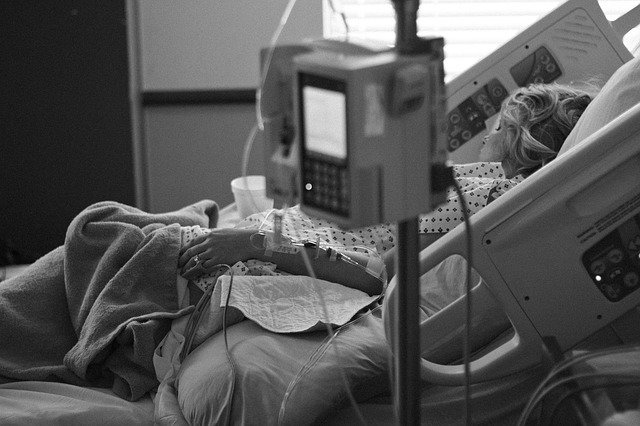24 Apr. 2020. Compression stockings, 3-D printed with electronic circuits woven in, will soon be tested among patients bed-ridden for long periods with Covid-19 infections. The stockings are developed by engineers at Aarhus University in Denmark, with a clinical trial assessment in Copenhagen funded by a DKK 1 million ($US 144,868) grant from the Lundbeck Foundation.
Many of the severely ill patients with Covid-19 infections are confined to their hospital beds for weeks at a time, who often rely on breathing help from ventilators or other devices. Loss of muscle mass can be a serious problem for these patients, losing as much as 10 to 20 percent in 5 to 10 days, according to estimates by Aarhus University. A team of engineers and medical researchers are developing compression stockings, often provided to bed-ridden patients to improve blood circulation in the legs and prevent blood clots, but designed in this case to prevent loss of muscle mass.
Researchers from the Aarhus electrical engineering lab of professor Shweta Agarwala are creating the compression stockings. Agarwala and colleagues study 3-D printing of flexible electronics for wearable devices, as well as other consumer electronics and automotive applications. The engineers also study inorganic bio-electronics where electronic signals interact with biological cues, to read, interpret, and guide biological activity, particularly for medical devices.
Compression stockings for Covid-19 patients are designed to allow for contact with the patient for days or even weeks, thus they cannot irritate the skin. “We’re already 3-D printing electrodes and wires onto the first stockings,” says Agarwala in a university statement. “The electrodes have three ultra-thin layers, which make it possible to stimulate the muscles through the stocking with minimal irritation. We expect to have the first 50 prototypes ready for testing by patients in a month.”
Aarhus software engineer and team member Peter Høgh Mikkelsen adds, “Among other things, we need to measure how well patients maintain their muscle mass during hospitalization, and whether there is any discomfort. This gives us good opportunities to optimize the technological design later.”
The clinical trial with Covid-19 patients is carried out at two hospitals affiliated with University of Copenhagen, led by clinical medicine professor Charlotte Suetta. “We’ve started this project,” notes Suetta, “because we’re convinced that the technology can help patients. It really costs a lot of time, money and not least patient well-being to recover from long-term hospitalization, and we already know that electric stimulation can help to keep muscles going.”
In addition, say the researchers, 3-D printing will allow for rapid scale-up of production, when larger quantities are needed. That need may arise in the Fall when Danish health authorities expect a second wave of Covid-19 infections. The team says it can produce 500 more pairs of the electronic compression stockings at that time.
The Lundbeck Foundation grant was one of eight awards made earlier this month to institutions in Denmark. The foundation says it so far distributed some DKK 30 million ($USD 4.35 million) for research on Covid-19.
More from Science & Enterprise:
- Covid-19 Real-World Evidence System Created
- Trial Testing Mechanical Ventilator Alternatives
- Univ. Engineers Convert CPAP into Ventilator
- Univ. Labs Design, Produce Medical Face Shields
- Simple, Inexpensive Ventilator Developed [Updated]
* * *


 RSS - Posts
RSS - Posts
You must be logged in to post a comment.